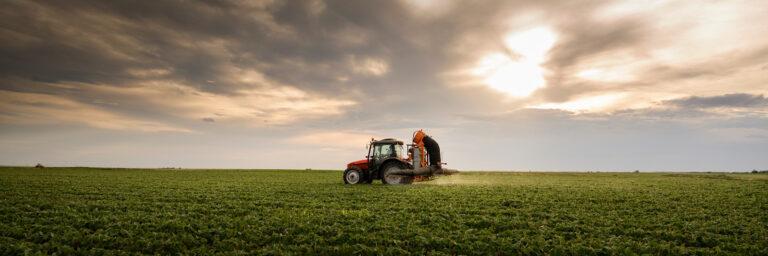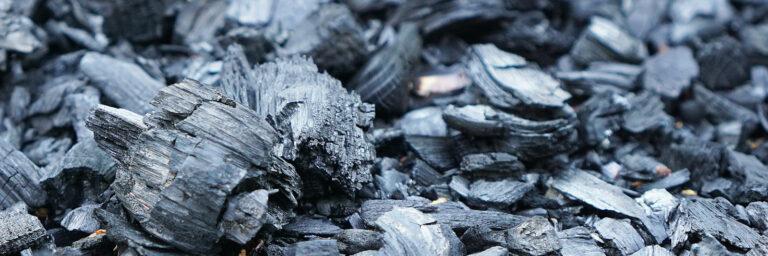
The project, called Nitrogen Utilisation Efficiency-Legume (NUE-Leg), will exploit major innovations in plant breeding, soil microbiology, nutrition and grassland management to achieve improvements in the capacities of legumes, such as white and red clovers, in combination with nitrogen-fixing soil microbes, to increase nitrogen capture from fresh air and make this available to grasslands.
New proprietary legume varieties have also been developed by Germinal and Aberystwyth University that improve the efficiency of protein uptake by cattle from grassland, thereby reducing emissions of ammonia. Other varieties have been developed which contain tannins that reduce methane emissions by cattle. The project will evaluate the tolerance and persistence of these legumes on commercial farms across all ruminant livestock sectors (beef, sheep and dairy).
Dr Rachael Ramsey, Head of Science and Research at Agrecalc, said: “This project presents an exciting opportunity to utilise the joint power of a commercial carbon footprint and resource efficiency tool, Agrecalc, and a project-specific novel research orientated life-cycle-analysis tool developed by Aberystwyth University, to quantify the potential benefits and impacts of using improved nitrogen fixing legumes into grassland swards on real-life working farms in the UK.
“This will be the first time in the UK that either such a singular, or combined, approach to measure the environmental benefit of forage legume-based pastures will be used.”
NUE-Leg has drawn together scientific expertise and global leaders in plant breeding and soil microbiology, agronomy, carbon emissions and the farming and food supply chain. Project partners include: Aberystwyth University, Germinal, Origin Enterprises, the James Hutton Institute, Agrecalc, Linking Environment and Farming (LEAF), Dovecote Farm, Pilgrim’s Pride, Müller UK & Ireland and the CIEL Innovation Centre.
The objective of Project NUE-Leg is to create the conditions in commercial farm settings that will enable clover to fix up to 300 kg of nitrogen per hectare per year, a large portion of which will be available for grass growth. At these levels, additional chemical nitrogen fertilisers needed for grass growth can largely be eliminated.
Welcoming the DEFRA Award on behalf of NUE-Leg Project Partners, Mr. Paul Billings, Managing Director Germinal UK & Ireland, said:
“Nitrogen is an essential nutrient for growing grass. Without it we could not grow the grass we need to feed our livestock and produce the dairy and meat products we need.
“However, nitrogen fertilisers are also a major source of greenhouse gas emissions in their manufacture and transport, and from in-field losses such as nitrous oxide and ammonia. They are also a source of nitrate losses to our waterways. They are expensive and farmers have seen huge volatility in prices, particularly in the last two years when price fluctuations have been around 300%.”
NUE-Leg Project rolls out on-farm testing of new legume varieties combined with elite nitrogen-fixing soil microbes and tailored plant nutritional formulations. On-farm testing and evaluation will take place across 14 commercial farms (11 in England) co-ordinated by Aberystwyth University and NUE-Leg Project supply chain partners: Dovecote Park (beef), Pilgrim’s Pride (lamb), Müller UK & Ireland (dairy) and farming charity LEAF.
Project ‘NUE-Leg’ will deploy a new approach to fertilising and managing grasslands. At the heart of the project are new legumes bred by Germinal Horizon at the Institute of Biological, Environmental and Rural Sciences (IBERS), which is part of Aberystwyth University.
These include a proprietary hybrid clover known as ‘DoubleRoot’ and a new red clover called ‘RedRunner’. DoubleRoot legumes show greater persistence in grasslands. RedRunner legumes show improved efficiency of protein uptake by livestock resulting lower emissions of ammonia.
A further innovation is the adaption of a native UK hedgerow plant called Birdsfoot Trefoil to pasture and grazing conditions in order to utilise its tannins content to reduce methane emissions by ruminant animals.
Mr Billings adds: “Governments around the world have rightly said that we need to reduce our reliance on nitrogen fertilisers. We need a solution.
“Legumes such as white and red clovers grown with grass can fix nitrogen from the air, but with no emissions. A current grass sward with a good clover content could fix on average between 100 and 150 kg of nitrogen per hectare per year.
“The clover will use about 75 kg of this for itself. The rest is available to the grass.
“But what if we could maximise the capacity of clovers to fix nitrogen by ensuring we have enough clovers that can persist in the sward, and match them with the right soil microbes and the right nutrition? We also need to wrap this up in a management approach that supports farmers and gives them the tools and information they need to make this work in a commercial setting, and make a profit.
“This is what we want to achieve with Project NUE-Leg. We want to achieve a threefold increase in the capacity of clovers to fix atmospheric nitrogen up to 300 kg nitrogen per hectare per year and thereby eliminate the need for chemical nitrogen fertilisers.
“This project has the potential to be truly transformative for grassland farming in the UK and globally. It could be a game-changer in both cutting emissions and in supporting farm profitability. In this context, we are very grateful to the UK Government for this funding award which allows this important project to proceed to its next on-farm testing and proving phase.”
The NUE-Leg Project will significantly contribute to farm profitability and help insulate farmers from the huge variability in fertiliser costs that has been very apparent since 2021. It is estimated that every 100 kg N / ha / yr fixed on a 200 ha farm will save £22,000 / yr. in costs and offset 66 t of CO2eq GHG emissions.
Soil microbes, called rhizobia, have been specially selected and will be matched with these new legume varieties to help maximise their nitrogen fixing capacity. These innovations will be further enhanced with tailored plant nutritional packages from Origin Fertilisers matched to soil status and crop requirements that support the conditions needed to maximise nitrogen fixing from fresh air.
Dr Ramsey added: “We expect that the combined environmental benefits of forage-legume based pastures will lead to lower ammonia and GHG emissions, and ultimately a lower overall farm carbon footprint.
“We believe that introducing new elite legumes will ultimately lead to a more resilient and sustainable farm business, both environmentally and economically, and will support UK farmers on their transitional journey to net zero.”
Nitrogen fertilisers are a major source of greenhouse gas emissions in the UK and a significant cause of water pollution, with 55% of the land area of England within Nitrate Vulnerable Zones. Around 210,000 tonnes of nitrogen fertilisers used in grasslands in England generates approximately 700,000 tonnes of CO2 equivalent.
The NUE-Leg Project aims to enable these combinations of clover species, rhizobia and nutrient packages to fix up to 300 kg of nitrogen per hectare per year leaving over 200 kg N/ha/yr for grass growth and thereby eliminating any requirement for additional chemical nitrogen fertilisers.
On-farm testing and evaluation will take place across 14 commercial farms (11 in England) co-ordinated by Aberystwyth University and NUE-Leg Project supply chain partners: Dovecote Park (beef), Pilgrim’s Pride (lamb), Müller UK & Ireland (dairy) and farming charity LEAF.
The aim of Project NUE-Leg is to create the conditions in commercial farming settings that no additional chemical nitrogen fertilisers will be required for grass. Furthermore, every 100 kg N / ha / yr fixed on a 200 ha farm will save £22,000 / yr. in costs and offset 66 t of CO2eq GHG emissions.


After two years of operation as a Limited Company, Agrecalc became part of Scotland’s Rural College (SRUC) as of 1 April 2025.

Biochar is a carbon-rich material produced by pyrolysing biomass, which offers a variety of potential agronomic benefits. In this guest article, Black Bull Biochar discusses how these effects work together to bolster productivity, sustainability, and resilience in farming.